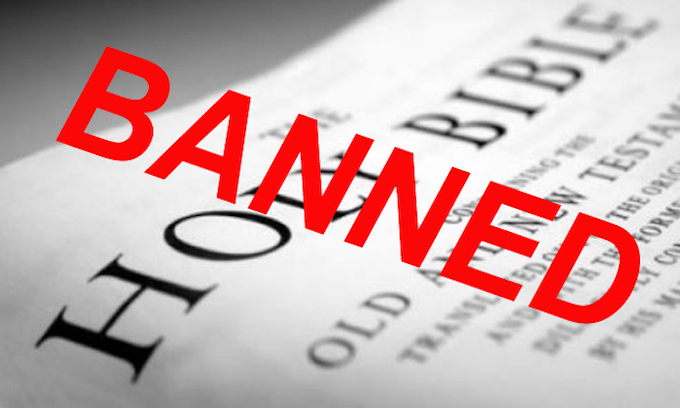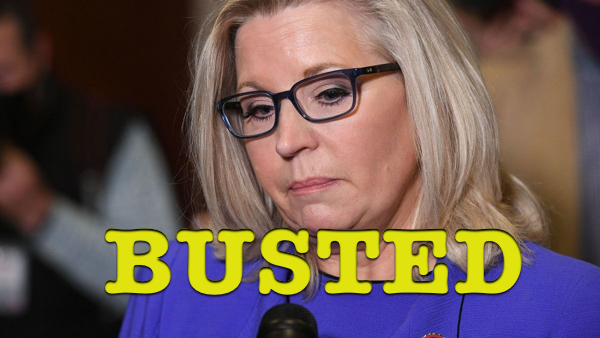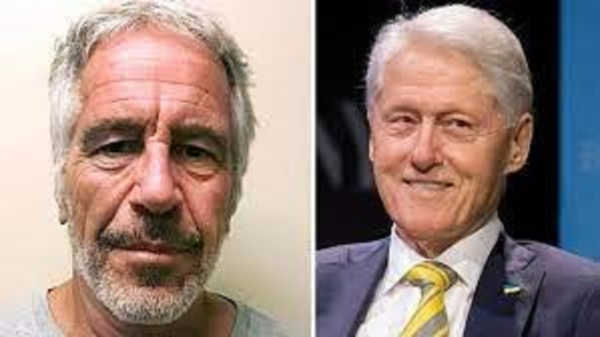The late, great Steve Jobs‘ legacy, Apple, has removed a popular Bible app and a Quran app from users in China being able to access it after the Communist Chinese Party (the Chi-Coms) declared that these apps violate local laws on hosting religious texts.
Bible App by Olive Tree, an app with more than one million downloads, and Quran Majeed, used by millions of Muslims, have been taken down due to so-called compliance issues, the tech company revealed to the BBC.
Apple didn’t really want to talk about it when asked to comment by the BBC, instead pointing to its Human Rights Policy: “We’re required to comply with local laws, and at times there are complex issues about which we may disagree with governments.
How is denying people their religious freedoms part of a human rights policy?
Apple told the outlet that they removed the apps from their platform because the Chi-Coms told them that the apps violated laws on “hosting illegal religious texts.”
“Apple chief executive Tim Cook has been accused of hypocrisy from politicians in the US.. for speaking out about American politics, but staying quiet about China,” the outlet noted.
According to Christian Post, the Chi-Coms are also taking down Bible apps and the Christian WeChat public accounts as restrictive measures on religious staff went into effect earlier in the year.
The communists want government to be the top entity worshipped, not God. That’s why a lot of progressive Democrats want to punish religious people in the US. Many Democrat leaders like former disgraced New York Governor Andrew Cuomo and California’s Gavin Newsom picked on churches, synagogues, and mosques during the COVID-19 pandemic while allowing other entities to do things they wouldn’t allow the former.
Most religions believe in freedom and democracy and the commies want no part of that being preached to anyone.
Open Doors approximates China has over 97 million Christians, many of them worshipping in unregistered or what the Chi-Coms consider “illegal” underground churches.
International Christian Concern (ICC), a US based persecution watchdog group, has chronicled over 100 incidents of persecution against Christians in China between July 2020 and June 2021 while the Chi-Coms are trying to force Christians to drop their religious beliefs and convert into being good little members of the Communist Chinese Party
ICC tracked 23 incidents of Chi-Com officials destroying religious structures and symbols during its reporting period, a report detailed.
“The CCP has torn down, destroyed, and removed numerous churches in China, especially those that refused to submit to its control,” the report said.
The watchdog group also noted in the report that it recorded 14 cases of “Sinicization.” That’s where the government tried to force religious groups to assimilate into Chi-Com-defined Chinese culture. Kinda like the Borg. Resistance is futile. You will be assimilated.
Christians are not the only religious minority that are being persecuted by the Communist Chinese Party as the Uyghurs are also being persecuted for their religious beliefs.
It is estimated that between one million and three million Uyghur Muslims have been placed into internment camps in the western Xinjiang province where they are being taught to live as non-religious or secular citizens who follow the dictates of the Chi-Com government.
The US State Department in January recognized Chinese treatment of the Uyghurs as “genocide.”
It’s not just Apple. This is what it’s come to. Many American corporations are putting Chinese dollars ahead of American values.
The NBA, which is making a lot of money in China, known in the US for its woke values, is forcing their players to remain silent on the un-woke policies of the Chi-Com government in order to keep NBA basketball in Chinese stadiums and on Chinese TV.
As of October 2019, there were major brands that bowed to China and began censoring for the communist regime.
From Mashable:
We’ve pulled some of the biggest brands from the list and added more context here
Activision Blizzard: The gaming company suspended a professional player of one of their card games following the player’s stated support for pro-democracy protests in Hong Kong. The Hong Kong protests began in June in response to an extradition bill that would have subjected Hong Kong residents to China’s rule of law; in effect jeopardizing the civil and political rights afforded to the city’s residents as a legacy of its colonial era.
American Airlines: Changed descriptions listing Taiwan as a country following pushback from China’s Civil Aviation Authority. The Chinese government in Beijing claims sovereignty over Taiwan, which is self-governed.
Apple: Removed an app from the Apple Store that aided Hong Kong protesters in tracking police and removed the Taiwanese flag emoji from Hong Kong iPhones.
Audi: Used a China map at a press conference that excluded Taiwan, South Tibet, and parts of the Xinjiang region; a company statement, then apologized for their “incorrect geographical map.”
Cathay Pacific: China ordered Cathay Pacific, a Hong Kong-based airline, to suspend staff who support and participate in the pro-democracy Hong Kong protests.
Coach: Referenced Hong Kong and Taiwan as individual countries on a shirt, then later called the design a “serious inaccuracy.”
Disney/ESPN: An internal memo distributed to ESPN employees prohibits reference to Chinese politics when alluding to a supportive tweet for Hong Kong protesters from the manager of the Houston Rockets.
Delta Airlines: Listed Tibet and Taiwan as countries on its website, and was ordered by China’s Civil Aviation Administration to make an apology. Delta called their listing a “grave mistake” with no “political intention.”
Gap: After selling a shirt that featured an “incorrect” map of China by not featuring Taiwan or South Tibet and receiving negative comments on Weibo, Gap apologized and removed the shirt from its stores.
Marriott International: In a customer questionnaire, Marriott listed Taiwan, Hong Kong, and Macau as separate countries; Marriott was ordered by the Shanghai’s Cyberspace Administration to take down its website for a week.
Medtronic: Listed “Republic of China (Taiwan)” on its website, then changed it and issued an apology following pressure from Chinese authorities.
Mercedes-Benz: Posted an Instagram photo accompanied by a quote from the Dalai Lama, then deleted the post, and offered a public apology to the Chinese people.
Muji: Eliminated maps in their store catalogues deemed “incorrect” by China’s National Administration of Surveying, Mapping and Geoinformation.
NBA: The General Manager of the Houston Rockets, Daryl Morey, tweeted — then deleted — support for Hong Kong protesters; Chinese companies revoked sponsorship and the issue sparked controversy within the NBA.
Nike: Merchandise for the Houston Rockets was removed from Nike stores in large cities in China following Morey’s tweet.
Ray-Ban: Changed website location listings from “Taiwan” to “China Taiwan,” Unlike other cases, it is unclear whether or not this decision followed pressure from China.
Swarovski: Listed Hong Kong as a country on its website then apologized on their Facebook page for “misleading communication on China’s National Sovereignty.”
Tiffany & Co: Tweeted then deleted an ad campaign with a model covering her eye, a move that appeared similar to gestures made by Hong Kong pro-democracy activists. The company dubbed the image “was in no way intended to be a political statement of any kind.”
Tik Tok: The platform, owned by Chinese company ByteDance, told moderators to censor videos featuring references to Tiananmen Square and Tibetan independence, as well as references to the banned religious group Falun Gong. These requests became public following the release of leaked documents from Tik Tok’s moderation guidelines.
Vans: Eliminated Hong Kong protesters’ entries in their annual Vans Custom Culture competition. In a statement, Vans said: “As a brand that is open to everyone, we have never taken a political position and therefore review designs to ensure they are in line with our company’s long-held values of respect and tolerance, as well as with our clearly communicated guidelines for this competition.”
Versace: Described Hong Kong as a country on a shirt that went viral. The fashion brand then tweeted an apology from Chief Creative Officer Donatella Versace apologizing for the shirt.
Viacom / Paramount Pictures: Trailers for “Top Gun: Maverick” censored the Taiwan flag in a jacket shown in the trailer, worn by Tom Cruise.
Zara: Listed Taiwan on a country list on their website; received an order from Shanghai’s Cyberspace Administration to publish an apology.










